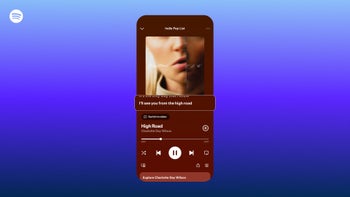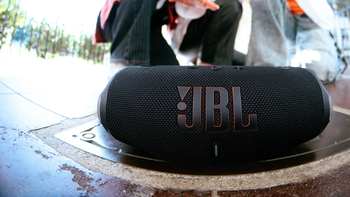RIM could allow non-BlackBerry devices use its services, says the PlayBook is a great standalone tablet

Research in Motion has been toying around with the idea to allow its bread-and-butter services like BES or BBM to be accessed on smartphones other than BlackBerry for some time. If we have to be honest, these services and the form factor are what people are buying BlackBerrys for, not their run-of-the-mill hardware.
Back in the days when Windows Mobile and Symbian ruled supreme, BlackBerry Application Suite was outed for a while, which allowed IT departments to manage the employees' non-BlackBerry phones. We tried it then, and it was a bit cumbersome to set up, but now this general idea is once again in the center of RIM's attention, as per VP Pete Devenyi:
"BlackBerry is and will continue to be dominant in most corporations, [but] it's not going to be the only device given the fact that consumers have the choice to bring in their own devices and IT departments are often letting them in. So there's a question there. Do those corporations have to manage those devices differently or is there the possibility that RIM might extend capabilities to make it easier for those corporations to manage those devices as well? If the right thing to do is to extend a subset of those [BlackBerry] capabilities to be able to manage other devices, it’s worthy of a conversation."
It was not said directly, but the reason behind the project's resurrection could be the outflow of corporate customers like JP Morgan, Dell and some others, who are allowing other phones and platforms on their corporate networks. And the fact that the BlackBerry PlayBook (our hands-on here) is planned to appeal to the widest possible audience, with none of the usual BlackBerry apps on it, makes for an even stronger case for that to happen.
Currently the only way to access BBM and BES services on the PlayBook is to pair up your current BlackBerry smartphone with it, using a software called BlackBerry Bridge. RIM’s Ryan Bidan, who is in charge of the PlayBook, says in an interview: “On its own, this is a great standalone tablet... This is not a device that is reliant on a BlackBerry....There have been some misconceptions about the role this device plays. The PlayBook is a solid, Wi-Fi-enabled tablet in its own right,”.
Well, its purchase of QNX was named "The smartest tech acquisition of 2010" by Business Insider, and we agree it was a great idea, although it will take time for it to bear fruit. As for the PlayBook, we are sure that within months you will be able to do all sorts of things with it, including your typical BlackBerry stuff. We are more worried RIM is doing with their smartphones, hopefully the rumors about a 1.2GHz CPU in the next BlackBerry Torch have merit.
source: Forbes & Electronista
Currently the only way to access BBM and BES services on the PlayBook is to pair up your current BlackBerry smartphone with it, using a software called BlackBerry Bridge. RIM’s Ryan Bidan, who is in charge of the PlayBook, says in an interview: “On its own, this is a great standalone tablet... This is not a device that is reliant on a BlackBerry....There have been some misconceptions about the role this device plays. The PlayBook is a solid, Wi-Fi-enabled tablet in its own right,”.
source: Forbes & Electronista
Follow us on Google News













Things that are NOT allowed:
To help keep our community safe and free from spam, we apply temporary limits to newly created accounts: